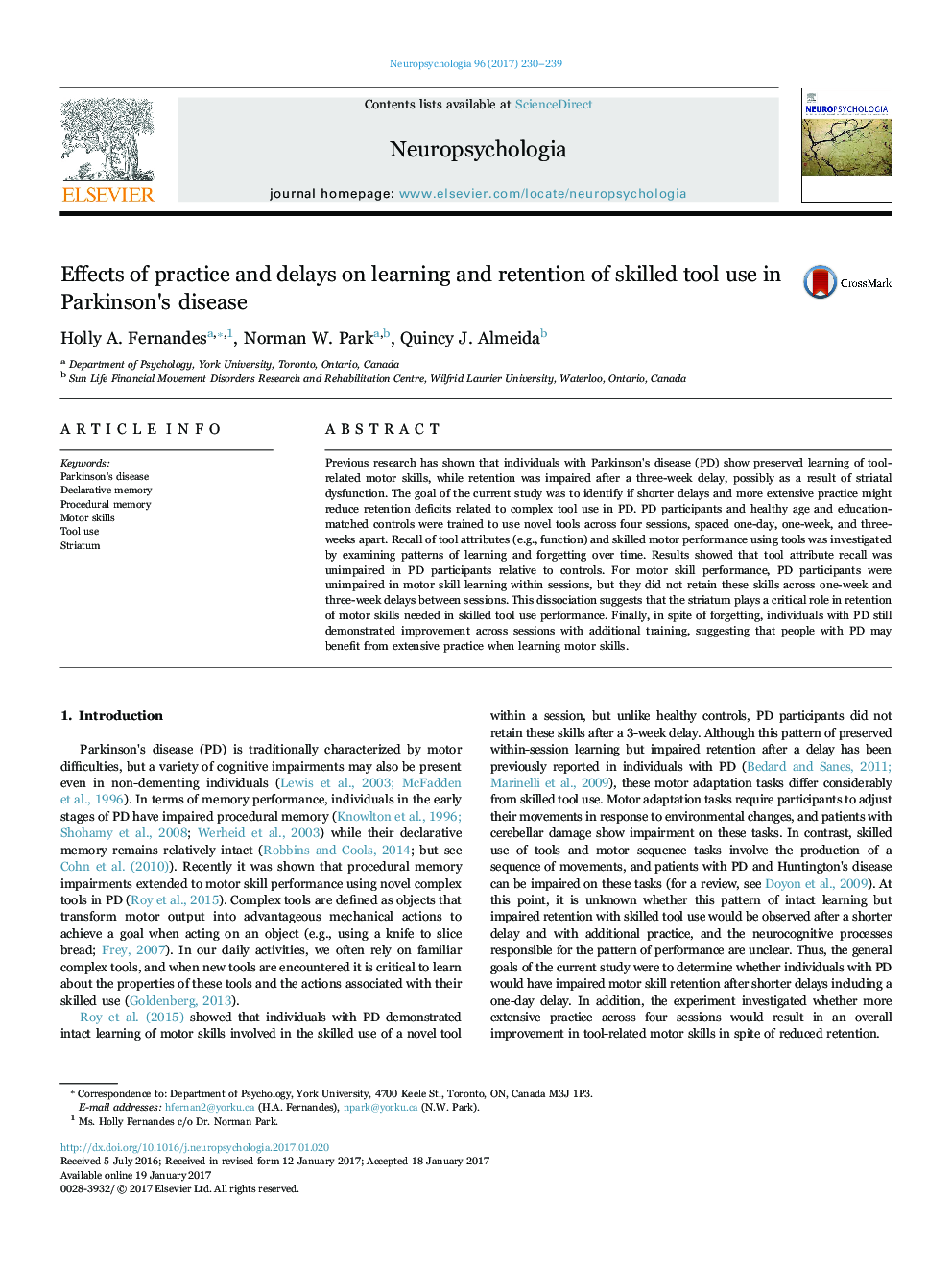| Article ID | Journal | Published Year | Pages | File Type |
|---|---|---|---|---|
| 5045413 | Neuropsychologia | 2017 | 10 Pages |
â¢Assessed acquisition and retention of tool-related motor skills.â¢Tool-related skills impaired between sessions in Parkinson's disease (PD) persons.â¢Within-session motor skill tool acquisition unimpaired in PDs.â¢Striatum may be needed to retain tool-related skills.â¢PD participant tool-related motor performance improved with extensive practice.
Previous research has shown that individuals with Parkinson's disease (PD) show preserved learning of tool-related motor skills, while retention was impaired after a three-week delay, possibly as a result of striatal dysfunction. The goal of the current study was to identify if shorter delays and more extensive practice might reduce retention deficits related to complex tool use in PD. PD participants and healthy age and education-matched controls were trained to use novel tools across four sessions, spaced one-day, one-week, and three-weeks apart. Recall of tool attributes (e.g., function) and skilled motor performance using tools was investigated by examining patterns of learning and forgetting over time. Results showed that tool attribute recall was unimpaired in PD participants relative to controls. For motor skill performance, PD participants were unimpaired in motor skill learning within sessions, but they did not retain these skills across one-week and three-week delays between sessions. This dissociation suggests that the striatum plays a critical role in retention of motor skills needed in skilled tool use performance. Finally, in spite of forgetting, individuals with PD still demonstrated improvement across sessions with additional training, suggesting that people with PD may benefit from extensive practice when learning motor skills.
